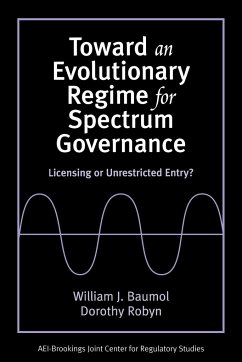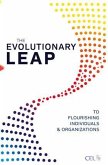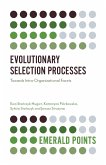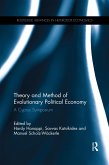"A Brookings Institution Press and American Enterprise Institute publication The federal government's approach to regulating the spectrum remains largely administrative, causing major inefficiency and waste. Ironically, just as the FCC has begun to use market mechanisms, some people are pushing to treat spectrum as a common resource open to all entrants. Commons proponents maintain that with new, interference-avoiding technology, licensing is becoming unnecessary and impractical. In this brief study, noted economist William J. Baumol evaluates two options for spectrum governance-a tradable license (market) approach and a commons approach. He compares the practicality of each in terms of six key issues: interference, adequacy of investment in innovation, monopoly power, preservation of diversity, service to rural areas, and the tension between vested interests and the need for adaptable arrangements. Baumol demonstrates that, while neither approach is ideal, a commons regime has severe shortcomings. Above all, he emphasizes the importance of impermanence in the granting of licenses to preserve the flexibility to adapt to unforeseen technological and other developments."
Bitte wählen Sie Ihr Anliegen aus.
Rechnungen
Retourenschein anfordern
Bestellstatus
Storno








